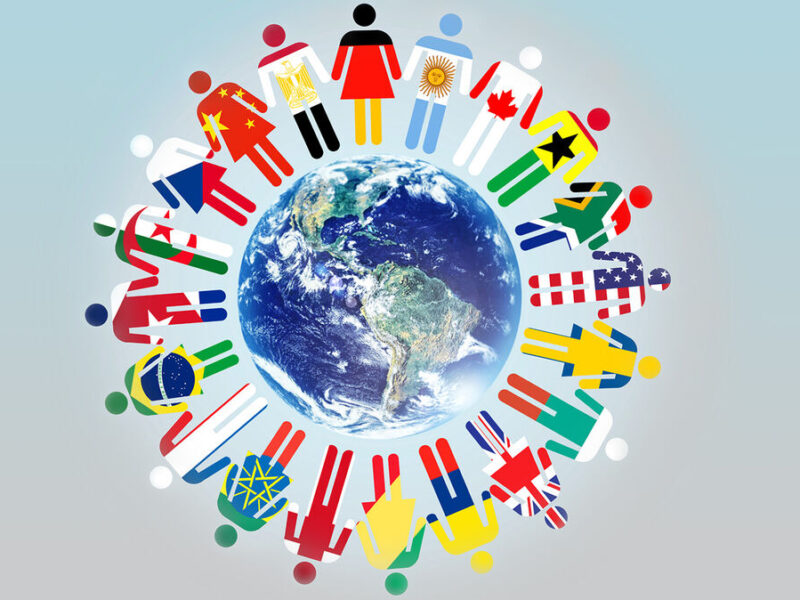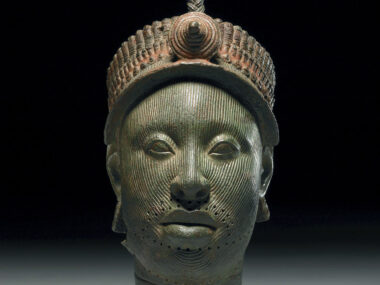Cultural globalization is a phenomenon that has transformed societies around the world, reshaping cultural identities, practices, and interactions on a global scale.
In an increasingly interconnected world, cultural exchange and diffusion have accelerated, facilitated by advances in technology, communication, transportation, and trade.
In this essay, we will explore the complexities of cultural globalization, examining its drivers, manifestations, impacts, and implications for societies, individuals, and cultures worldwide.
Drivers of Cultural Globalization
Cultural globalization is driven by a multitude of factors that contribute to the spread, exchange, and integration of cultural elements across borders and continents. One of the primary drivers is technological advancements, particularly the internet and social media, which have revolutionized communication and facilitated the instant sharing of information, ideas, and cultural expressions worldwide.
The rise of digital platforms and streaming services has made it easier for people to access and consume diverse forms of media, entertainment, and cultural products from different parts of the world.
Globalization of trade and commerce has also played a significant role in cultural diffusion, as multinational corporations expand their operations and market their products and services internationally.
The proliferation of global brands, franchises, and consumer goods has led to the standardization of tastes, lifestyles, and consumption patterns across diverse cultural contexts, contributing to the homogenization of global culture in some respects.
Migration and mobility have further fueled cultural globalization, as people move across borders for work, education, tourism, and resettlement, bringing with them their languages, traditions, customs, and cuisines.
The cultural diversity and hybridity resulting from migration have enriched local communities and urban centres, creating vibrant multicultural hubs where people from different backgrounds interact, collaborate, and coexist.
Manifestations of Cultural Globalization
Cultural globalization manifests in various forms, ranging from the spread of popular culture and consumer products to the exchange of ideas, values, and ideologies across borders. Popular culture, including music, film, television, fashion, and sports, serves as a powerful vehicle for cultural globalization, shaping global trends, tastes, and identities.
Global icons and celebrities, such as Hollywood actors, pop musicians, and fashion influencers, exert influence and inspire emulation across continents, transcending linguistic, cultural, and national boundaries.
The culinary landscape has also been transformed by cultural globalization, as people embrace and incorporate diverse cuisines, ingredients, and cooking techniques from around the world. The proliferation of ethnic restaurants, food festivals, and fusion cuisine reflects the growing appetite for culinary diversity and experimentation, as people seek out new flavours and culinary experiences.
Language and communication are key aspects of cultural globalization, as the dominance of English as a global lingua franca facilitates cross-cultural communication and exchange. English-language media, literature, and education serve as conduits for the transmission of ideas, knowledge, and cultural values across linguistic and cultural divides, influencing language usage and identity formation worldwide.
Impacts of Cultural Globalization

Cultural globalization has profound impacts on societies, individuals, and cultures, shaping identities, values, and perceptions in complex and multifaceted ways. One of the primary impacts is the erosion of traditional cultural boundaries and the emergence of hybrid and cosmopolitan identities that transcend national, ethnic, and cultural affiliations.
Globalization challenges conventional notions of cultural authenticity and purity, as people navigate multiple cultural identities and affiliations in an increasingly interconnected world.
Cultural globalization also fosters cultural convergence and homogenization in some respects, as Western cultural values, norms, and lifestyles exert influence and dominance in global markets and media. Critics argue that this process of cultural homogenization leads to the loss of cultural diversity and the marginalization of indigenous and minority cultures, as they are overshadowed by dominant cultural narratives and representations.
However, cultural globalization also promotes cultural diversity and pluralism by creating opportunities for marginalized and underrepresented voices to be heard and amplified on the global stage.
Digital technologies and social media platforms empower individuals and communities to share their stories, perspectives, and experiences with global audiences, challenging dominant narratives and fostering intercultural dialogue and understanding.
Furthermore, cultural globalization stimulates cultural innovation and creativity by facilitating cross-fertilization and hybridization of cultural practices, traditions, and artistic expressions. Cultural exchange and collaboration between artists, musicians, filmmakers, and writers from different cultural backgrounds result in the emergence of new forms of art, music, literature, and entertainment that reflect the diversity and dynamism of global culture.
Implications of Cultural Globalization
Cultural globalization presents both opportunities and challenges for societies, individuals, and cultures navigating the complexities of an interconnected world. On one hand, globalization expands access to cultural resources, knowledge, and opportunities, empowering individuals to connect with others, pursue their aspirations, and participate in global networks and communities.
On the other hand, globalization also generates tensions and conflicts as cultures clash, compete, and negotiate their place in an increasingly interconnected and interdependent world. Cultural imperialism, cultural appropriation, and cultural commodification are among the ethical and social issues raised by cultural globalization, as dominant cultures exert influence and control over marginalized and vulnerable communities, exploiting their cultural heritage for commercial.
Related Tags
Taiwo Olawuyi
Taiwo Olawuyi is a highly dedicated and passionate professional blogger, renowned for her ability to create captivating, informative, and engaging content in the realm of health and wellness. She holds a Bachelor's degree in Political Science from Olabisi Onabanjo University and a Master's degree in Adult Education from the prestigious University of Ibadan. Her profound passion for health and wellness, coupled with her unwavering dedication to her audience, serves as a constant source of inspiration and enlightenment for readers worldwide.










